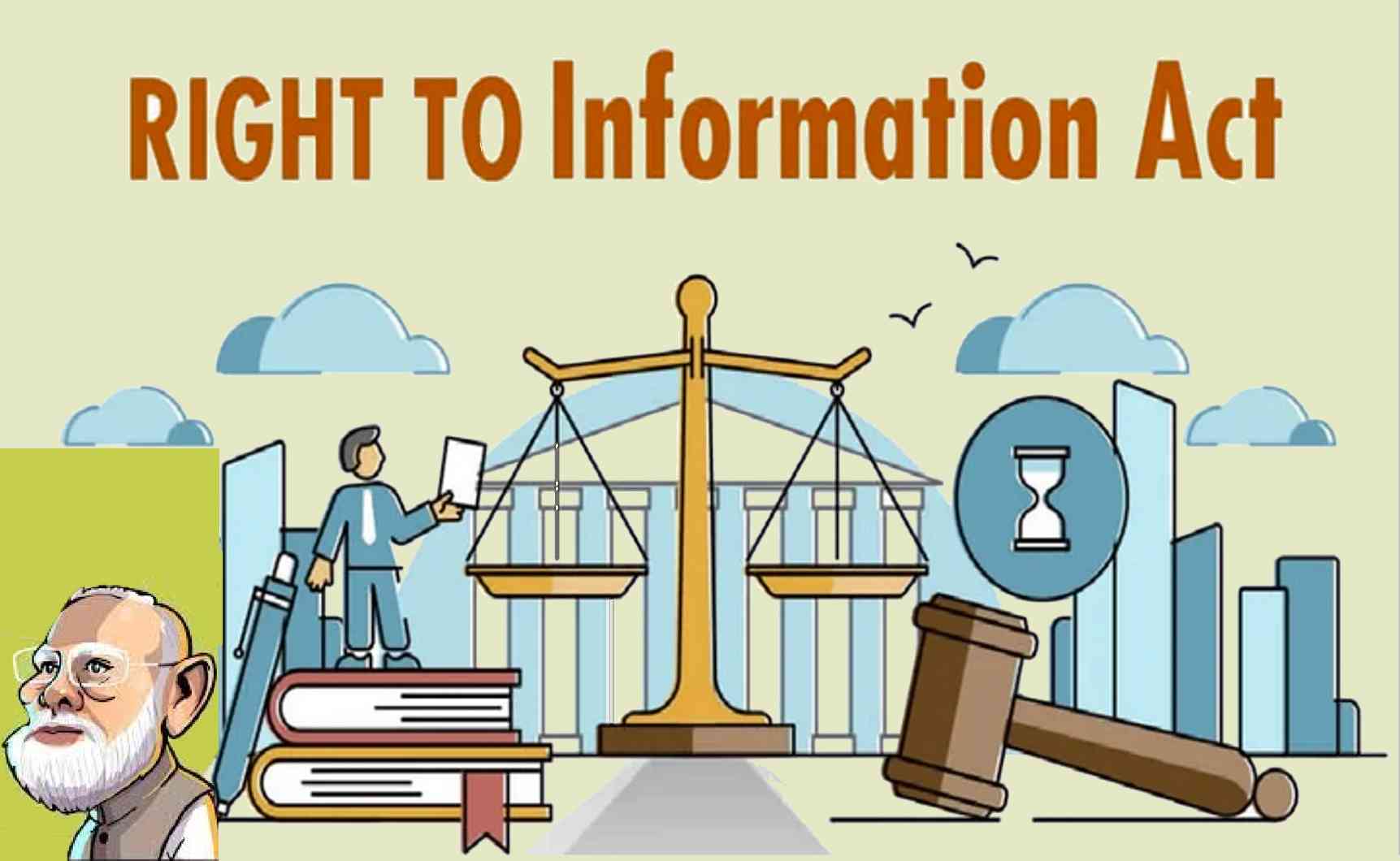Modi Government’s Attack on Citizens' Right to Information

Securing statutory recognition for the right to information in the form of the Right to Information Act of 2005 was an important milestone in the relentless people’s struggle for accountability and transparency, and towards deepening democracy in the functioning of the Indian state. That the legislation came almost 60 years after the Constitution enshrined the right to information as a fundamental right, stands testament to the disenchantment with the lack of democracy that fuelled the RTI movement.
Over the past two decades the RTI Act has emerged as an optimal tool for public oversight against corruption and opacity. However, now, the RTI Act faces an existential crisis in the face of the Modi government’s draconian amendments to the RTI Act through the Digital Personal Data Protection (DPDP) Act. As enacted, the RTI Act allowed for seeking information relating to personal information in larger public interest. The relevant provision and the other provisions of the RTI Act provided adequate safeguards for personal information to ensure accountability without allowing for its misuse.
However, through the Digital Personal Data Protection (DPDP) Act, the Modi government has comprehensively amended the RTI Act by imposing a blanket ban on disclosing personal information, threatening transparency and accountability. Incredibly the DPDP Act does not define "personal information" thereby allowing broad and arbitrary rejections. In effect, this amendment provides official sanction to an unconditional exemption for all personal information, restricting access to public data and information while denying people their fundamental right to seek accountability. The amendment is yet to come into force and there is a wave of opposition including from the Opposition parties and scores of organisations demanding the immediate rollback of these amendments and the strengthening of the RTI Act.
Ironically the Modi government that has left no stone unturned in becoming a surveillance state, invokes the very argument of privacy to justify the amendment. The DPDP Act itself, under the red herring of data protection, effectively sanctions state surveillance while allowing for the commodification of personnel data and granting excessive power to the State, and encroaching upon the very essence of life, liberty and freedom itself.
However, even this attempt to fabricate a trade-off between transparency and accountability on the one hand and privacy on the other, does not stand scrutiny since these are complementary rights which the Supreme Court’s Privacy judgment has emphatically held must be balanced. This is even more ironic given that the past decade has seen the Modi government make a mockery of the privacy verdict of the Supreme Court that emphasises citizens’ right to privacy and autonomy by permitting and enabling restrictions on diet, dress, speech and expression, and faith.
The amendment effectively exposes the hollowness of Modi’s slogan of “na khaunga na khane doonga” as it snatches away every weapon that people have wielded to expose financial irregularities and corruption among government entities and officials.
One of the most obvious beneficiaries of the amendment would be Prime Minister Narendra Modi. One would remember that in 2016, when Modi’s alleged degree certificate was sought to be obtained under the RTI Act, the same remains elusive despite dogged efforts to make these documents public. The amendment provides official sanction for such arbitrary and illegal refusal to disclose information thus providing the government with greater control over RTI officials and exemptions.
This amendment is just the latest endeavour of the Modi government to defang the RTI Act. Over the past decade, scores of RTI activists have been killed while their harassment and intimidation has become commonplace. The 2018 amendments to the RTI Act have effectively removed the autonomy of the RTI Commissions by increasing the Union government’s role in fixing the salary and tenure of RTI Commissioners. The functioning of the RTI Commissions has deteriorated to a great extent evidenced by the massive case backlog and inordinate delay in disposing of cases.
The Right to Information Act is being killed in the name of 'data protection'. Every inconvenient information can be arbitrarily suppressed as 'personal data' and every attempt to expose corruption and abuse of power can be penalised as a violation of privacy! This latest amendment is yet another example of the Modi government's characteristic intent to undermine the country's democratic institutions.
Charu Bhawan, U-90, Shakarpur, Delhi 110092
Phone: +91-11-42785864 | +91 9717274961 E-mail: info@cpiml.org

